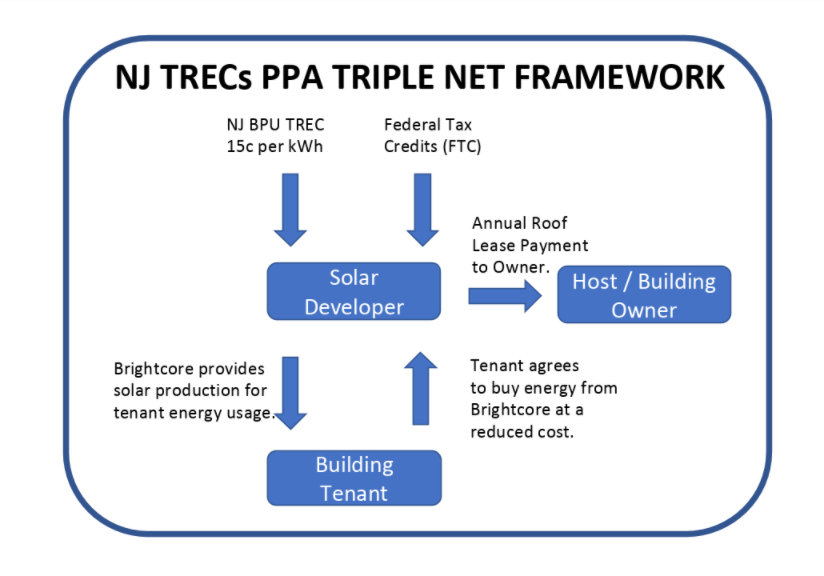- Sep 21, 2020
- 7 min read
How does the NJ TREC program eliminate owner concern for tenant vacancy risk?
The current NJ TREC Solar incentive of $152 (15.2c per kWh) enables any building owner to offset vacancy risk, up to a completely empty building. In the past, many owners have not implemented solar because of the misalignment of shorter term tenant triple net leases and the longer term agreement required in a solar Power Purchasing Agreement (PPA). Tenants aren’t willing to commit to purchasing power beyond the term of their building lease, and owners are not willing to commit to buying power when the space is vacant. Although the indicative economics of solar installation are extremely attractive, millions of square feet remains on the sideline because of the concern for triple net lease complexity and potential space vacancy.
Why does tenant vacancy matter?
The TREC program is designed to be “behind the meter" since the solar installation is connected on the client side of the utility meter. The sizing of any solar system is dependent on the actual energy demand of the building/facility.
Typically most solar projects are contracted under a PPA (Power Purchasing Agreement) that allows a building owner to execute a solar installation with no upfront capital. The PPA is essentially a contract between the solar developer for solar production, the owner for hosting the system and the tenant for using the energy. The PPA creates a split incentive between the building owner and the tenant. The financial benefit for the owner is typically through an annual roof lease payment, and the tenant benefit is the reduced cost of energy.

Based on the facilities utilization of the solar power a very large financial incentive is realized, which can be tailored to benefit the owner, or balanced with the tenant.
The reason why vacancy is no longer a risk for the owner is the financial obligations of the PPA can be met even if the tenant space is empty. The owner would have no obligation to buy the solar power if the tenant space is vacant. As changes in tenants occur, each new tenant would then enter into an agreement with the developer to buy power at a reduced cost. The only impact to the owner would be reduced lease payments that reflect the reduced use of energy demand during tenant vacancy.
Don’t let today’s COVID-19 disruption stop you from securing a dramatic reduction in energy, or creating a new revenue stream from a rooftop lease. Contact Brightcore Energy to quickly get to a layout and indicative economics for a rooftop or parking canopy solar solution.
Click here for more frequently asked questions about the NJ TREC Solar Program.


-3.png)


